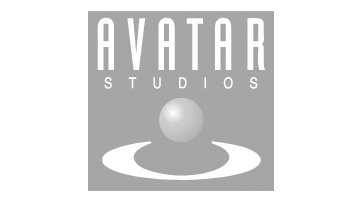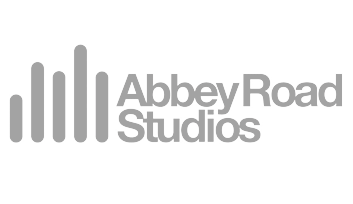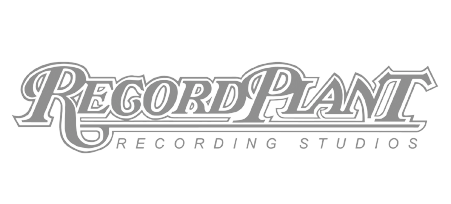Online mastering:
What you should know
There was a time when you had to hire a mastering engineer to turn a mix into a radio-ready track. That’s still a possibility. But these days there are many different options out there – not least in the form of online services (some of which are completely automated). If you’re new to mastering, you’re probably wondering whether these online services are any good. Well, some of them are. Read on to find out, what kind of mastering solution is right for you.
If you’re like most musicians out there, you have a rather romantic view on the recording process. You’re probably picturing a cozy studio environment with a polished Steinway placed in the center of the room. There are oriental rugs, vintage microphones and engineers nodding, giving you a thumbs-up from the other side of the glass. Oh, and faders – lots of faders! The song is then handed over to the mastering engineer: A seasoned pro with extraordinary listening skills and a vintage desk equipped with rare analog processors (some of which are fabled to have been forged by goblins).
Don’t get us wrong. We like the fantasy as much as you do. But most musicians don’t record this way anymore. Technological advances have made the home studio an affordable, yet workable, alternative to the professional studio. And the pro/home divide is getting increasingly smaller.
While DAWs like ProTools, Logic, Studio One, Ableton Live, Garageband, Nuendo and Cubase have become household names for music production and mixing, we’re still to see a mastering solution gain the same recognition as being an industry standard. Of course, we believe that our Finalizer is about to change that – again! Because we actually did that in the 90’s with the Finalizer hardware unit, yet this new version is a whole different ball park that offers many more possibilities, sophisticated mastering tools and flexibility.
Still, there are a lot of different mastering solutions out there – many of them in the form of online services. What kind of solution is right for you?

Three important parameters
With so many possibilities, it’s perhaps best to “break down the problem”. Generally, there are three important parameters that set the different online mastering solutions apart:
- The level of user-involvement by the songwriter/musician
- The technology used
- How the mastering process is carried out
The level of user-involvement
Some online mastering solutions are dirt simple. You simply drag-and-drop your track into a field on a website, without stating genre, overall feel or what platform the track will be distributed through. Out comes a processed file.
If you’re only looking to get a louder version of your track, this is fine. But since you’re here reading about mastering solutions, we take it that you want more influence on the final result.
Other online mastering solutions let you choose from a range of different presets – often with an emphasis on genre. If your style of music fits right into the mainstream sound associated with a specific genre, this approach may be okay. But often you’ll benefit more from comparing your own music with a group of individual tracks rather than just stating a genre (with the free Finalizer Web Analyzer such a comparison is possible, but more on that later).
A few online mastering tools allow you to customize existing presets/settings to fit your needs. If you have a basic understanding of mastering, this is a nice add-on.
Finally, some mastering engineers are offering their services online. You fill out a form and they’ll get in touch with you afterwards. From there you’ll have a dialog about the specifics of the mastering process. You send them your mix, and they send back the master when it’s done. Depending on your inputs, you can have some influence on the final product. This is the classic approach, but it is also the ‘Rolls Royce’ solution and the most expensive way to go.
The technology used
There are analog technologies, digital technologies and blends of the two, and many different processing algorithms that may seem similar on the surface. Most online mastering tools will have numerous signal processing parameters ‘under the hood’.
A few companies advertise that your mix will be mastered on an all-analog mastering desk. Although this may sound appealing to some, chances are there is some digital processing involved as well. We’re not saying that’s a problem, as very high quality digital processing, as well as very high quality analog equipment, don’t leave audible artifacts in the sound.
Some digital mastering solutions will give you feedback. Advances in AI (artificial intelligence) means that these suggestions are becoming better all the time. With time, programs will likely be able to make qualified mastering decisions for themselves? And maybe they’ll even be able to make aesthetic judgments and comment on your work: “I’m afraid I can’t let you turn up that cowbell, Dave.”
Sorry, we got carried away.
How the mastering process is carried out
If you choose to send your mix to a mastering engineer, there’s bound to be some waiting time. You’ll have to wait your turn. The advantage of this method is that you get a skilled listener to make decisions for you and you get a second, objective set of ears on your project. It takes thousands of listening hours to be able to make good judgement calls about how to process a mix, and if you feel that your ears aren’t quite tuned in to your listening environment yet, it could be worth the money to hire a mastering engineer.
If you upload your mix to a website that does the mastering for you automatically, the process is carried out in a matter of minutes or even seconds. Depending on what online mastering solution you’re using, you’ll have some say in how the master turns out. The best of these services let you do some customization – and if you have a subscription for an infinite number of tracks, you have the possibility to go nuts and make tons of alternate masters that you can choose from later. Still, you’re shooting in the dark, if there’s no visual feedback.
Finally, there’s the possibility of using online mastering solutions that give you visual feedback and referential recommendations about mastering. That’s what the free Web Analyzer does, while the Finalizer desktop application gives you the tools to follow these recommendations and create a professional radio/streaming-ready master.

About Finalizer Web Analyzer
The Finalizer Web Analyzer is a free cloud-based service that lets you compare your music project with an ever-expanding set of reference tracks. Upload your track and harness the power of TC Electronic’s innovative displays and advanced measuring algorithms.
- The brand new Compress-O-Meter gives an overview of dynamics and loudness
- The acclaimed TC Loudness Radar reveals loudness over the duration of your track
- The Spectr-O-Meter gives you an overview of the frequency spectral content of your whole track
Using these powerful tools, you can compare your mastered tracks with some of the most famous tracks in the history of music, the latest sound from the Billboard top chart, or recent developments on the various streaming services.
Read more about Finalizer Analyzer and the Finalizer Desktop App here!














